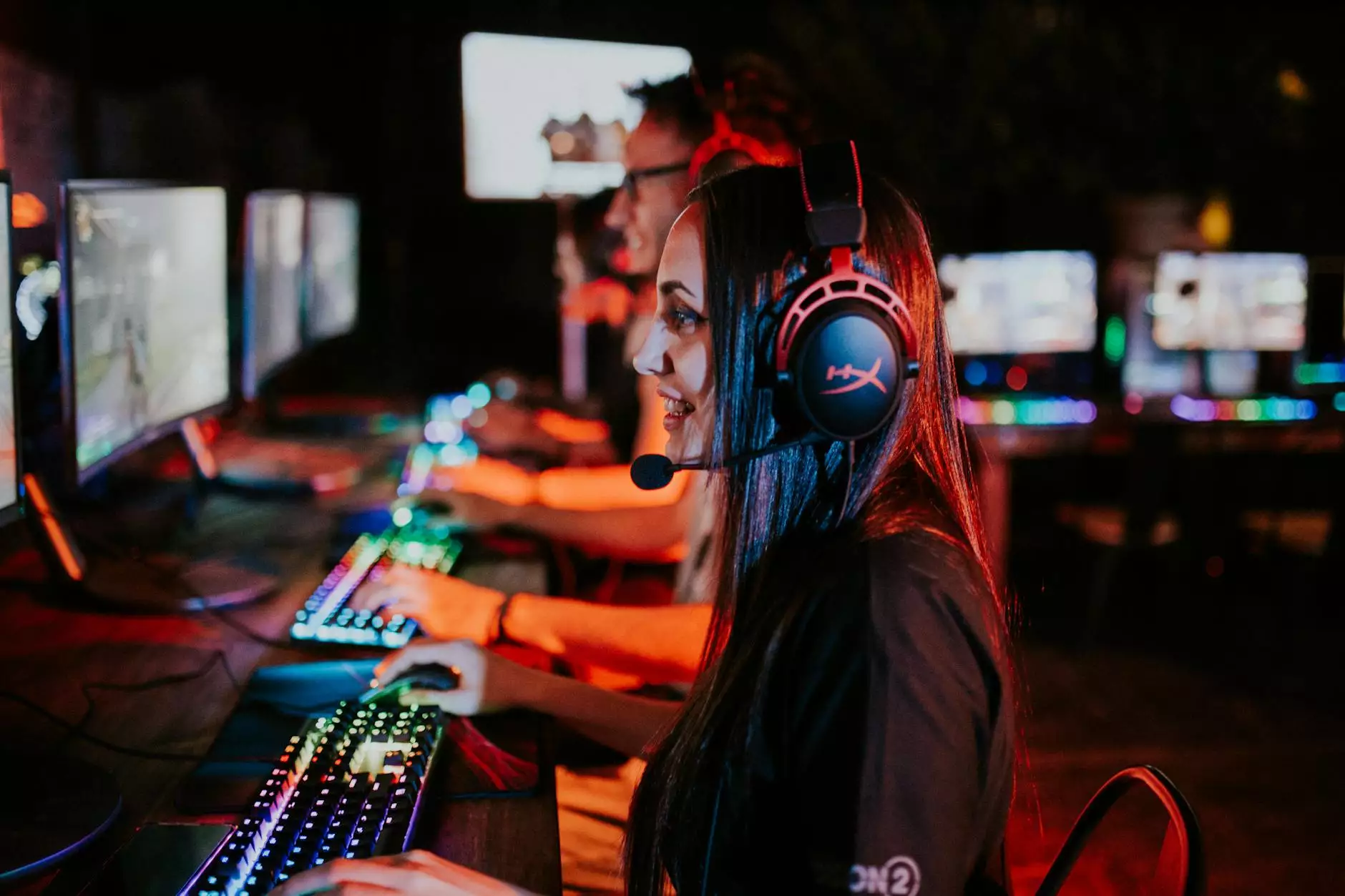Unlocking New Frontiers: The Ultimate Guide to Porting Video Games for Global Success

In today's rapidly evolving gaming industry, the importance of porting video games cannot be overstated. As game developers and publishers seek to maximize their reach and revenue, transforming a game from one platform to another — whether from PC to consoles, mobile devices, or emerging platforms — becomes a strategic necessity. Porting video games is not merely about migrating code; it's about adapting the entire gaming experience to resonate with diverse audiences worldwide, ensuring seamless gameplay, optimal performance, and cultural relevance across different markets.
Understanding the Significance of Porting Video Games in the Modern Gaming Ecosystem
Porting video games plays a pivotal role in expanding a game's lifespan and profitability. It allows developers to tap into new customer bases, enhance brand visibility, and generate additional revenue streams. In a market where consumers have access to various devices and platforms, failing to port a game effectively can result in missed opportunities and lost market share.
Moreover, successful porting video games helps in establishing a game’s reputation as a versatile and player-focused product. It demonstrates developers' commitment to accessibility and inclusivity, which are critical factors influencing consumer purchasing decisions today.
The Core Components of Effective Game Porting
Executing a successful porting video games process demands meticulous planning, expertise, and adaptability. Here are the essential components involved:
- Technical Adaptation: Ensuring the game runs smoothly on the target platform's hardware and software specifications.
- UI/UX Optimization: Modifying user interfaces and user experiences to suit different screen sizes, input methods, and cultural preferences.
- Performance Tuning: Achieving optimal frame rates, load times, and stability tailored to the platform's capabilities.
- Localization and Culturalization: Adapting content to align with local languages, cultural norms, and legal requirements.
- Platform Compliance: Meeting the technical and policy requirements mandated by platform providers like Sony, Microsoft, Nintendo, and app stores.
- Quality Assurance Testing: Rigorous testing to identify and resolve platform-specific bugs or compatibility issues.
Why Choose a Professional Game Development Outsourcing Company Like PingleStudio?
Partnering with an experienced game development outsourcing company such as PingleStudio offers unparalleled benefits in the porting video games process. Our expertise, dedicated resources, and industry insights empower clients to streamline their porting projects successfully.
Key Advantages of Outsourcing Porting Video Games to PingleStudio
- Global Experience: Proven track record in porting games across various platforms including PC, consoles, mobile, VR, and AR devices.
- Technical Expertise: Skilled teams adept in diverse development tools, SDKs, and programming languages essential for multi-platform porting.
- Cost Efficiency: Reducing in-house expenses while maintaining high quality standards through outsourcing.
- Faster Time-to-Market: Accelerated development cycles without compromising quality, helping you beat competitors.
- Focus on Core Development: Allowing your internal teams to prioritize innovation and creative aspects of game design while experts handle porting.
- Continuous Support and Maintenance: Ensuring your game remains compatible with platform updates and market demands post-launch.
Step-by-Step Process for Porting Video Games with Industry Leaders
At PingleStudio, the process of porting video games follows a well-structured methodology designed to minimize risks and maximize quality:
1. Project Assessment and Planning
This initial phase involves evaluating the current version of the game, understanding target platforms, and defining scope, timelines, and resource allocation. Clear milestones and deliverables are established to ensure transparency and accountability.
2. Technical Adaptation and Code Migration
Experts analyze the game’s code and assets to adapt them for new hardware and software environments. This includes handling platform-specific APIs, optimizing graphics, input systems, and ensuring everything integrates seamlessly.
3. UI/UX Redesign and Localization
The adaptation of user interfaces and localized content ensures that the game is engaging and culturally relevant across diverse markets. This step often involves redesigning menus, HUD elements, and in-game dialogues to align with regional preferences.
4. Content Optimization and Performance Tuning
Critical adjustments are made to guarantee the game performs efficiently, with optimized load times, high frame rates, and stable gameplay. Asset compression, resolution adjustments, and platform-specific enhancements are incorporated here.
5. Rigorous Testing and Quality Assurance
Comprehensive QA procedures are employed to identify bugs, glitches, or performance bottlenecks. Compatibility tests across different devices and configurations ensure a smooth user experience.
6. Compliance, Certification, and Launch
Final preparations include ensuring all platform requirements are met, submitting the game for certification, and managing the launch process to maximize visibility and downloads.
The Future of Porting Video Games: Embracing Emerging Technologies
As technology advances, porting video games will become even more dynamic. Innovations such as cloud gaming, streaming services, and the rise of cross-platform play demand scalable, flexible porting solutions. Companies like PingleStudio are committed to staying at the forefront of these trends, ensuring that clients' games are future-ready.
Cloud Gaming and Streaming
This emerging domain allows games to be played on virtually any device without traditional hardware constraints. Efficient porting strategies will support game streaming platforms, enabling players worldwide to access games seamlessly regardless of device limitations.
Cross-Platform Play
Offering players the ability to interact across different devices enhances engagement and longevity. Proper porting ensures that gameplay remains consistent and synchronized across platforms, fostering a unified gaming community.
Integration of AI and VR/AR Technologies
Future-proofing involves integrating artificial intelligence, virtual reality, and augmented reality capabilities into ported versions. These cutting-edge features require precise technical adaptation and optimization, which professional outsourcing firms can provide efficiently.
Success Stories: How Outsourcing Porting Video Games Boosted Market Reach
Numerous game developers have leveraged professional porting video games services for strategic market expansion:
- Case Study 1: A leading indie developer expanded from PC to consoles with minimal delays, reaching millions of new players through expert porting and localization.
- Case Study 2: A mobile game was successfully ported to the Nintendo Switch, increasing revenue streams by 40% within the first quarter post-launch.
- Case Study 3: An AAA title experienced enhanced global sales after being optimized for cloud streaming platforms, thanks to meticulous platform adaptation.
Conclusion: Why Porting Video Games Is a Critical Investment for Your Game's Future
In the highly competitive gaming landscape, porting video games is more than technical execution — it’s a strategic move that unlocks new markets, maximizes revenue, and bolsters brand reputation. Engaging experienced partners like PingleStudio ensures your game reaches its full potential across platforms with excellence and efficiency. Embrace the future of gaming by investing in expert porting solutions today to cement your place in the global gaming economy.









